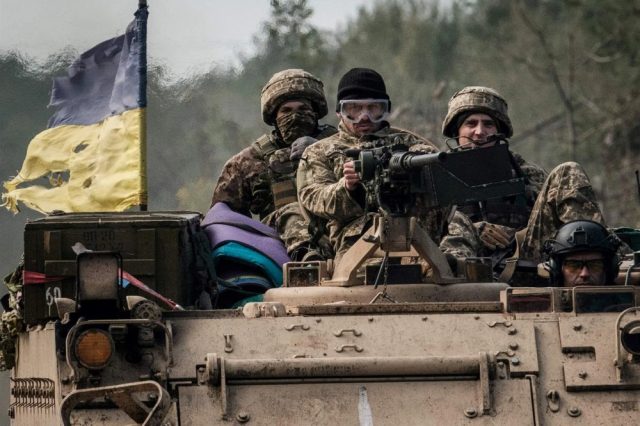
It’s already been a week since Ukraine, with some of the most battle-hardened brigades of its armed forces, daringly decided to cross the border into the Kursk region. A premier since the Second World War. 351 km² of occupied land later, the veteran fighters are still holding on the reigns of control, to the shock and awe of the Kremlin.
Information is slim, due to the delicacy of such an operation. The Ukrainian Armed forces are not saying much for the press and, at the same time, Russia is also holding a tight lid on what is being heard about the situation. The rumor mill brought to light a possible transfer of power inside the operation to retake Kursk, from the Ministry of Defense to the FSB, Russia’s feared secret service.
Most of what is known of the action in Kursk is now propagated through military bloggers looking through satellites and through some leaks inside the government in Kyiv. Putin took the rare step of addressing the situation on Russian state television, even subtly pointing some of the blame on his generals and vowing that the situation will be resolved swiftly.
Will it? We do not know yet. Although the incursion undoubtedly boosts Ukrainian morale and poses a political challenge for Putin and his military leadership, it remains uncertain whether it will influence the critical battles. If the Ukrainian invasion is ultimately repelled at a significant cost to Ukrainian forces, it could eventually be viewed as a miscalculation.
All in all, the question remains: Why?
There are likely multiple objectives that Ukraine aims to achieve through this incursion. The first objective, which has already been met, is to uplift morale within Ukraine. This success serves to unify the Ukrainian population and bolster their resolve. Additionally, the incursion has succeeded in embarrassing the Russian military, exposing vulnerabilities and potentially eroding confidence in their leadership. Vladimir Putin could very well be having flashbacks to the Wagner riot at this moment, an event from which it appears Russia has learned very little.
The second goal involves compelling Russia to redirect forces from the eastern front lines, where they have been relentlessly attacking Ukrainian positions and slowly gaining territory. By forcing Russia to spread its resources thinner, Ukraine could alleviate some of the pressure on its forces in the east, maybe even hope for the opportunity of a counter-attack. However, it remains uncertain whether Russia will indeed shift its focus or if it can suppress the incursion using reserves from other regions.
The third objective revolves around strengthening Ukraine’s position in any potential peace negotiations. Holding Russian territory could serve as a powerful bargaining chip, potentially forcing Russia to negotiate under less favorable terms. If Ukraine can maintain control over Russian land, it could significantly enhance its leverage in future diplomatic discussions, shifting the balance of power in its favor. Russia holds multiple Ukrainian oblasts at this moment. The return of (at least) one of them in exchange for Kursk could be a realistic scenario if Kyiv’s armed forces manage to entrench themselves over there.
Even so, aspects are far from being clear, the fog of war looms over the conflict. Russia seems prepared to pay a steep price to achieve its aims in Ukraine, likely banking on the assumption that Western support for Ukraine will wane before Russia itself grows weary of the conflict and the heavy losses it incurs. This calculation highlights why the upcoming U.S. election is viewed as pivotal; the outcome could significantly influence the level of continued Western support for Ukraine.
At the same time, Ukraine’s recent incursion into the Kursk region might be a strategic attempt to increase pressure on Russia to consider negotiations to end the war. By extending the conflict into Russian territory, Ukraine could be trying to make the cost of the war more palpable for Russia, thereby encouraging them to seek a diplomatic resolution.



 Subscribe
Subscribe